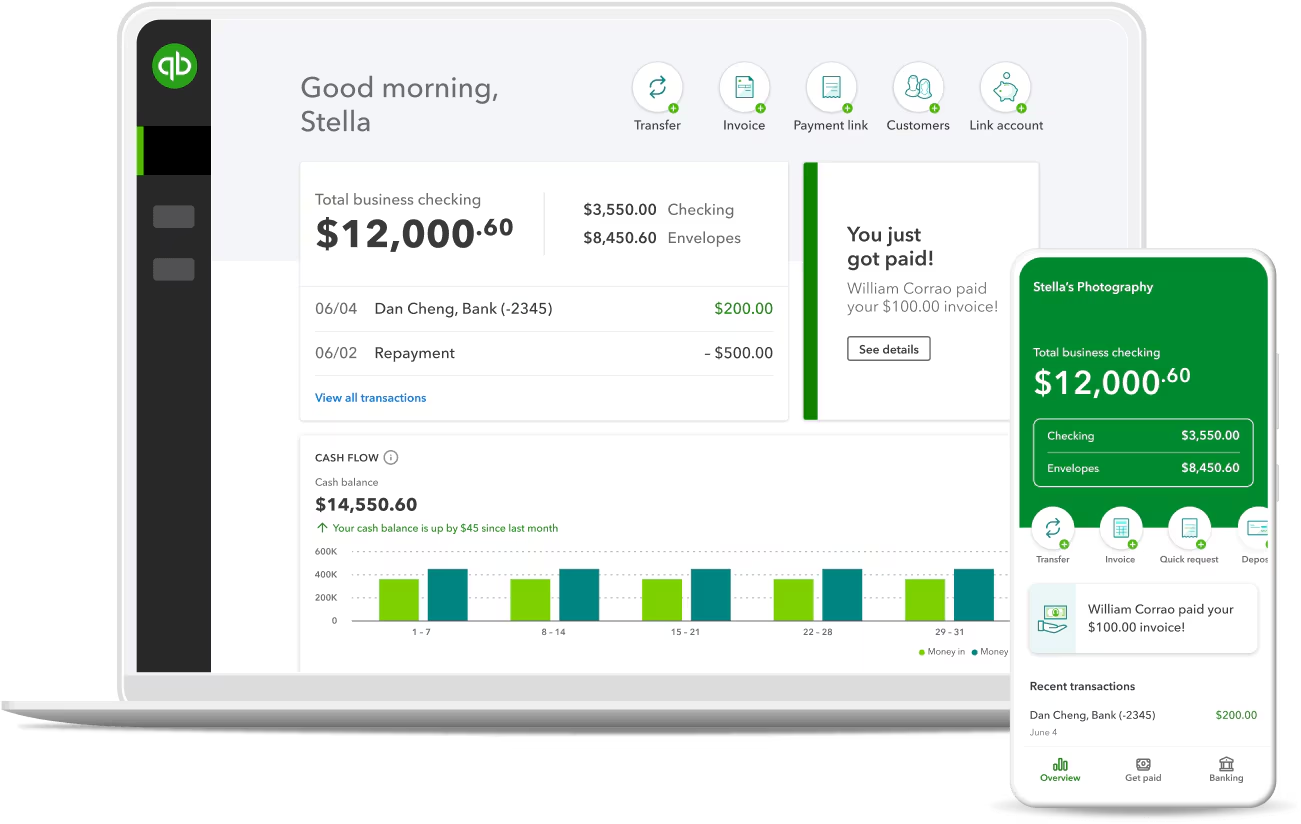QuickBooks is a popular accounting software developed by Intuit, used primarily by small to medium-sized businesses for managing their financial transactions and accounting tasks. It helps users track income and expenses, manage invoices, payroll, and inventory, and generate financial reports. QuickBooks is designed to simplify bookkeeping and financial management, making it easier for business owners to stay on top of their finances without needing extensive accounting knowledge.

Here’s a more detailed look at what QuickBooks can do:
- Bookkeeping and Financial Management:
- Track Income and Expenses: QuickBooks allows users to categorize and record financial transactions, making it easy to track where money is coming from and going.
- Bank Reconciliation: It helps reconcile bank statements with accounting records, ensuring accuracy in financial reporting.
- Invoicing and Payments:
- Create and Send Invoices: Users can generate professional invoices, customize them, and send them directly to clients. It also tracks invoice status and payments.
- Payment Processing: QuickBooks integrates with payment gateways, allowing businesses to accept payments online, via credit card, or through ACH transfers.
- Payroll Management:
- Employee Payroll: It facilitates payroll processing, including calculating wages, deductions, and taxes. It can also generate pay stubs and direct deposit payments.
- Tax Filing: QuickBooks helps with tax calculations and can generate reports required for tax filing, including W-2s and 1099s.
- Expense Tracking:
- Expense Management: Users can track business expenses, capture receipts using the mobile app, and categorize them for easy reporting.
- Mileage Tracking: For businesses with employees or owners who drive for work, QuickBooks can track mileage and reimbursements.
- Financial Reporting:
- Generate Reports: QuickBooks provides a variety of financial reports, such as profit and loss statements, balance sheets, and cash flow statements, to help businesses understand their financial health.
- Custom Reports: Users can customize reports to focus on specific areas of the business or to meet specific needs.
- Inventory Management:
- Track Inventory: For businesses that sell products, QuickBooks helps track inventory levels, manage stock, and create purchase orders.
- Cost Tracking: It tracks the cost of goods sold and helps manage inventory costs effectively.
- Tax Preparation:
- Organize Financial Data: QuickBooks organizes financial data in a way that simplifies tax preparation and filing.
- Tax Reports: It generates reports that help in preparing taxes and ensuring compliance with tax regulations.
- Multi-User Access:
- Collaborative Tools: Multiple users can access QuickBooks with varying levels of permissions, making it easier for teams to work together on financial tasks.
- Integration with Other Software:
- Third-Party Integrations: QuickBooks integrates with a variety of other software applications, such as CRM systems, e-commerce platforms, and banking tools, enhancing its functionality and adaptability.
- Cloud-Based Access:
- Remote Access: With QuickBooks Online, users can access their financial data from anywhere with an internet connection, providing flexibility for remote work and on-the-go management.
Overall, QuickBooks is designed to help businesses maintain accurate financial records, streamline accounting processes, and provide insights into their financial performance.
